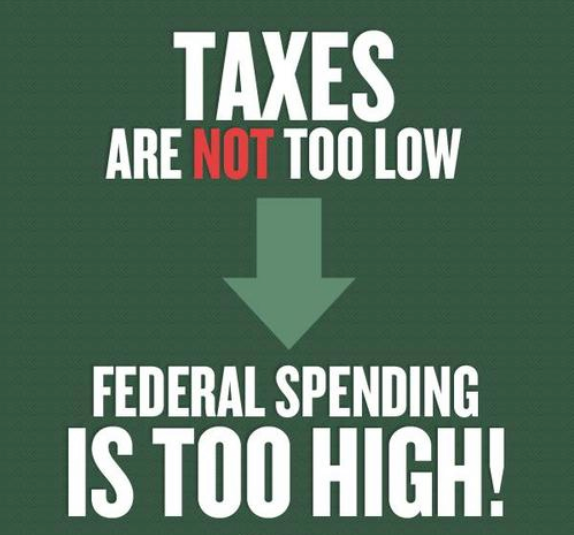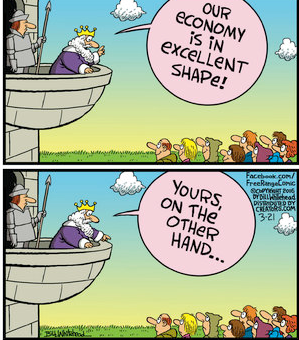Category Archives: Editorial
Budget fix still crucial for Colorado
Budget fix still crucial for Colorado
Lawmakers should reclassify hospital provider fee
Yes, Colorado lawmakers, it’s still important to deal with a projected budgetary crunch triggered by future tax refunds even if they are no longer likely in the next fiscal year.
The problem is only being delayed for one year. Refunds will almost certainly be required in the following years under the Taxpayer’s Bill of Rights unless the economy entirely tanks. And yet they will come at the expense of critical transportation, capital maintenance and education funding. Indeed, transportation funding is already slated to decline in next year’s budget.
In other words, lawmakers still have urgent reason this session to reclassify the hospital provider fee into a separate “enterprise fund” to allow the state to remain below TABOR revenue limits without refunding money.
To read the rest of this story, click (HERE):
Colorado’s provider ‘fee’: Even the federal government knows its a tax
March 25, 2016 12:22 PM· By Linda Gorman
In 2009, the Democrats controlling Colorado state government wanted more money. Among other things, they wanted to expand Medicaid. They needed to increase state revenues. Their problem was that the Colorado Constitution requires a vote on new state taxes and the U.S. was in the depths of a severe economic downturn.
![]() State officials knew that a new tax would never be approved by a popular vote. To get around both the letter and the spirit of their constitutional duty, they simply labeled the provider tax a “fee” and imposed it. Fees do not require a vote.
State officials knew that a new tax would never be approved by a popular vote. To get around both the letter and the spirit of their constitutional duty, they simply labeled the provider tax a “fee” and imposed it. Fees do not require a vote.
Today that tax badly disguised as a fee is raising $688 million in additional revenues that is counted towards the total amount of tax revenue that the state is allowed to keep under the Colorado’s Taxpayer Bill of Rights (TABOR).
“Our” vs “Your”
TABOR Explained In 77 Seconds
“No One Owes You Anything”
Harry Browne, an American author and businessman, first wrote this in 1966. It’s a letter dedicated to his daughter, then nine years old. Take a look — we guarantee you’ll learn a lot.
’…It’s Christmas and I have the usual problem of deciding what to give you. I know you might enjoy many things — books, games, clothes.
But I’m very selfish. I want to give you something that will stay with you for more than a few months or years. I want to give you a gift that might remind you of me every Christmas.
If I could give you just one thing, I’d want it to be a simple truth that took me many years to learn. If you learn it now, it may enrich your life in hundreds of ways. And it may prevent you from facing many problems that have hurt people who have never learned it.
The truth is simply this:
No one owes you anything.
Significance
How could such a simple statement be important? It may not seem so, but understanding it can bless your entire life.
No one owes you anything. Continue reading
Yes, Colorado’s hospital fee plan is legal
Yes, Colorado’s hospital fee plan is legal
Colorado legislature should reclassify hospital provider fee
Democrats who had accused Republican Attorney General Cynthia Coffman of undue partisanship might have to rethink their thesis after her announcement last week that it is perfectly legal to adopt a budget manuever the governor has proposed and GOP lawmakers have denounced as a violation of the Taxpayer’s Bill of Rights.
Not so fast, Coffman said in effect to doubting lawmakers. Based on the language of the constitution and various court rulings, the state could indeed legally reclassify the hospital provider fee to free up $200 million in additional spending under TABOR, her legal analysis concluded.
“The debate over whether to create a hospital provider fee enterprise can now shift back to the General Assembly,” she added.
Unfortunately, leading Republicans in the assembly are still raising dubious legal objections to the plan.
Republican leader: TABOR issue rides on who should decide
House Republican leader Brian DelGrosso of Loveland said it’s time for “honest fiscal policy” and not TABOR accounting gimmicks to pay for Colorado’s roads and bridges.
DelGrosso has penned an editorial laying out his — and presumably the Republican caucus’ — position on a Democratic plan to reclassify the state’s hospital provider fee to get it out from under a revenue cap voters approved in 1992 when they added the Taxpayer’s Bill of Rights to the state constitution.
The move also would negate state refunds worth between about $37 up to $111 per taxpayer next year.
“Taking more money from taxpayers without their consent will not solve our challenges,” DelGrosso writes. “We have the money and our budget is growing, but using some budget maneuver is definitely no substitute for honest fiscal policy.”
TABOR has marvelous ideas
TABOR has marvelous ideas
Once again, TABOR is under assault by those who only see taxpayers as an unlimited ATM (Gazette, Feb. 28, Section A, Local & State, “Town hall on budget mess cast blame on TABOR”).
Quoting from the article, “TABOR caps government revenue collections based on inflation and population growth, sets state’s tax structure and restricts government spending.” What a marvelous idea! Michael Merrifield (D, House District 18) laments that legislators “get permission from the voters to raise taxes.” Another marvelous idea.
The federal government under the current administration has expanded the U.S. debt to $17 trillion or about $50,000 per person. Considering that 47 percent of the population pays no federal taxes, we taxpayers are on the hook for much more. TABOR has kept the Colorado legislators from going on perpetual spending sprees and concomitant tax increases.
We also need TABOR legislation for the U.S. Congress.
Denny Modlin
Colorado Springs
http://gazette.com/letters-teflon-label-has-been-…/…/1571257
Blake: Funding transportation needs adds fuel to the fire
Blake: Funding transportation needs adds fuel to the fire
If you are looking for an opportunity to pay higher taxes, this is your year.
Already on Colorado’s 2016 ballot is a single-payer health plan that would boost the state income tax rate to 14.63 percent, highest in the nation.
On its heels comes a planned initiative sponsored by the Colorado Contractors Association, which wants more money to build roads and mass transit projects.
Not by increasing the state gasoline tax, now 22 cents a gallon, but by increasing the state sales tax, now 2.9 percent, by up to three-quarters of a cent.
The final figure has yet to be determined, said Bill Ray, spokesman for the planned initiative. The organizers have until March 25 to propose their final ballot language.
They are working backwards from a goal of raising $500 million to $600 million more per year, which under the Taxpayer’s Bill of Rights (TABOR) has to be listed on the ballot question. They will consider the state’s current revenue stream and then figure out how much higher the tax rate must be to raise the money.
If taxes are a must, user-pay levies are generally considered the fairest. Those who drive their cars over the roads pay their taxes at the pump. Those who don’t drive don’t have to pay.
But earlier polling by the CCA determined that an increase in the gasoline tax would be “roundly rebuffed” by voters, said Ray.






